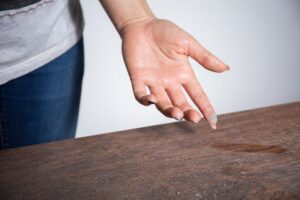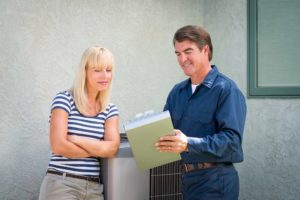How to Keep Your Baby Comfortable With the Proper Humidity
Having a baby changes everything. You start noticing certain things in your life that could cause potential harm to that little child. You worry about the sharp corners on furniture, you religiously clean to prevent illness, and you drive with the highest-quality car seat there is. What many new parents in Charleston, South Carolina, are discovering, however, is that caring for your child goes far beyond fighting dangers you can see; even moisture can be a threat. By effectively regulating humidity in the nursery and throughout your home, you can keep your baby comfortable and healthy. Here’s how.
How Humidity Affects Babies
As adults, we’ve gotten used to the discomfort that can come from high or low humidity levels, but to a child, humidity does more than cause a little discomfort. We can live when we feel less comfortable, but a baby’s comfort is also a relatively safe indicator of its health. A baby that’s too warm or too cold can contract infections or illnesses. That’s why you should keep your nursery between 65 and 72 degrees Fahrenheit. If you feel comfortable in there, the baby probably does too.
But here’s the problem with temperature: humidity plays with it. High humidity levels make the air feel warmer than it is, and low humidity can make a room feel much colder. Extreme humidity levels, on either end of the spectrum, will also affect your HVAC efficiency, which reduces the system’s ability to maintain your baby’s comfort.
In addition to affecting temperature, humidity levels can wreak havoc on indoor air quality. Dry air, for instance, can irritate throats and sinuses, and since babies are more susceptible to congestion, the dry air can make them more likely to get sick. Low humidity can also irritate the baby’s sensitive skin, exacerbating the effects of eczema and causing redness and chapped, cracked lips. On the other end, high humidity levels often stimulate allergen growth, which lead to another host of health issues.
The Best Humidity Level for Babies
So where should you keep humidity levels? Doctors recommend keeping your baby’s nursery between 50 and 60 percent relative humidity. Setting the humidity below 60 percent will lessen the chances for allergen growth and their consequential allergic reactions. Keeping it above 50 will prevent the spread of other viruses, counteract skin and sinus irritation, and keep down dust particles. And if you want to guarantee the comfort and health of the rest of your family, that humidity level should be maintained throughout the rest of your home.
Maintaining the prescribed humidity level will also keep humidity from adversely affecting temperature, which allows you to better guarantee comfort for your child. To ensure that humidity is in the right place, check to see if your baby feels either too hot or too cold. If they’re sweaty or their skin appears red and mottled, then they’re obviously too hot. To check if they’re cold, feel their chest. Checking hands and feet won’t do much good since they’ll likely be cool due to your baby’s immature circulation system.
How to Regulate Humidity
The trick now is to keep humidity in line. Moisture levels will fluctuate with the season, so your strategies will likely need to adjust as well. In the winter, when air dries out, you may need a humidifier. And while many homeowners simply plug a humidifier into the nursery, a whole-home humidifier can provide healthy humidity levels for your entire home. Working with your HVAC system, a whole-home humidifier monitors humidity levels and adds moisture to your airflow according to your settings.
Since humidity levels tend to climb during Charleston summers, it may be beneficial to install a whole-home dehumidifier as well, which will further reduce the chances of discomfort and mold growth. Similar to a humidifier, a whole-home dehumidifier pulls moisture out of the HVAC airflow.
With the teamwork of a humidifier and dehumidifier, you can ensure the happiness and well-being of your baby. For a professional hand improving your home’s comfort and health, call M & B Heating and Air at 843-628-1775.
Image provided by Shutterstock
You May Also Like

Does My Home Have Poor IAQ in Charleston, SC?
The air quality in your home can significantly impact your health. Allergens like dust, dirt and pet dander can trigger a host… Continue Reading Does My Home Have Poor IAQ in Charleston, SC?…

Why Does My Heat Pump Blow Cold Air in Charleston, SC?
When the temperatures dip outside in Charleston, South Carolina, you depend on your heating system to keep things warm indoors. If your… Continue Reading Why Does My Heat Pump Blow Cold Air in Charleston, SC?…

Signs That You May Need a New Furnace
There comes a time in a furnace lifespan when replacing it with a new heating system is the right move to make.… Continue Reading Signs That You May Need a New Furnace…
